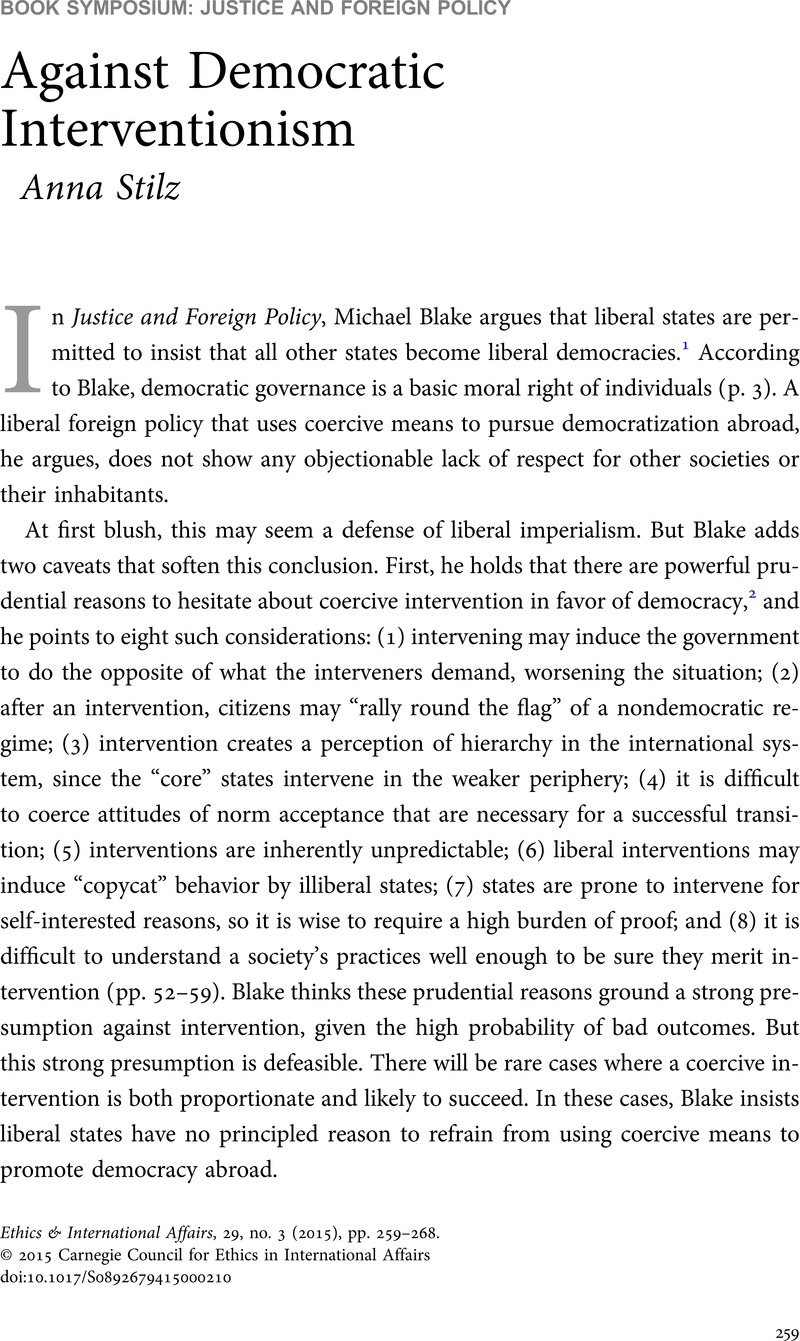Published online by Cambridge University Press: 08 September 2015

1 Michael Blake, Justice and Foreign Policy (New York: Oxford University Press, 2013). Hereafter cited parenthetically by page number.
2 I note that while Blake focuses on coercive intervention, this is a broader category than military intervention, including also economic sanctions (p. 52).
3 Rawls also suggests that liberal states should tolerate some illiberal regimes, specifically decent consultation hierarchies. See Rawls, The Law of Peoples (Cambridge, Mass.: Harvard University Press, 1999), pp. 62–78.
4 At certain points in the text—particularly ch. 3—Blake places less stress on autonomy, and speaks simply of “equal treatment” (p. 63). However, grounding equality in respect for autonomy is of fundamental importance for Blake's view.
5 For powerful accounts, see Luther Standing Bear, My People the Sioux (Bison Books, 2013); Jonathan Lear, Radical Hope (Cambridge, Mass.: Harvard University Press, 2006).
6 John Locke, Second Treatise (London: Awnsham Churchill, 1689), ch. 10.
7 Immanuel Kant, Metaphysics of Morals, §46 (6:314–16); “Perpetual Peace,” (8:352–53).
8 John Stuart Mill, Considerations on Representative Government (London: Parker, Son, and Bourn, West Strand, 1861), ch. 4.
9 Joshua Cohen offers a similar argument in “Is There a Human Right to Democracy?,” in The Arc of the Moral Universe (Cambridge, Mass.: Harvard University Press, 2010), pp. 357–58.